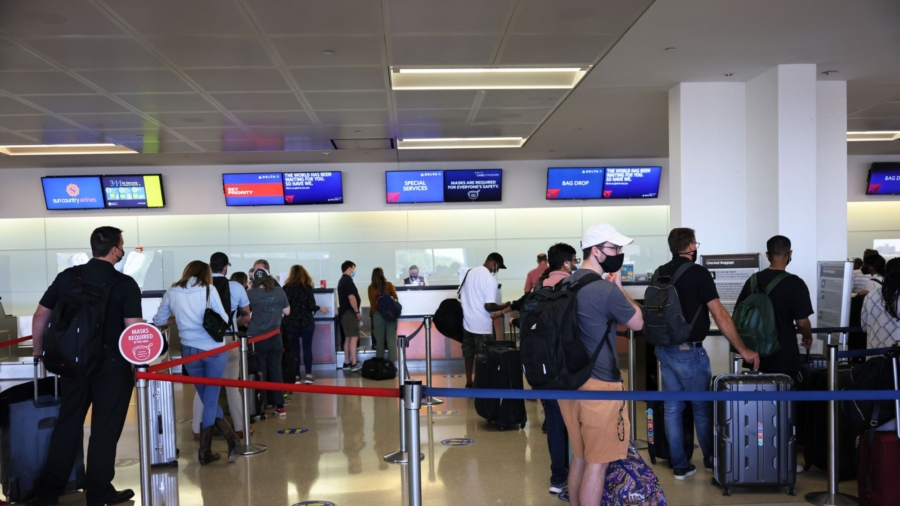The waning pandemic is driving a recovery in leisure and travel, along with a rotation of investor interest away from shares in stay-at-home sector companies that saw a lockdown-driven boom.
The so-called pandemic stock portfolio is seeing some churn, with investors pivoting away from companies like food-delivery firm Doordash, entertainment giant Netflix, video conferencing service Zoom, and home fitness company Peleton.
On Friday, shares of Peleton fell 35 percent, Zoom stock dipped 6 percent, and Netflix fell 6.5 percent over the week.
John Foley, CEO of Peleton said on a third-quarter earnings call that, “with respect to engagement, we always expected the engagement to come down slightly coming out of COVID.”
“I mean it’s just the idea that gyms are available, people can get out of their house now. They’re not locked down. So we knew that we weren’t going to see those crazy elevated COVID engagement numbers forever,” Foley added, with Peleton reporting a bigger-than-expected quarterly loss.
At the same time, markets have renewed their interest in shares in leisure and travel companies, including ride-hailing services Lyft and Uber, accommodation booker Airbnb, travel fare aggregator Expedia, airlines like Delta and American Airlines, along with entertainment firms like Eventbrite and Live Nation Entertainment.
Over the week, shares in Lyft vaulted 17 percent and those of Uber rose 8 percent, American Airlines stock was up 14 percent and Delta gained 13 percent. On Friday, Expedia stock jumped nearly 16 percent, while shares of Live Nation Entertainment gained 15 percent.
Peter Kern, CEO of Expedia, said on an earnings call that, in the prior quarter, the Delta surge hurt business, but that trend was now reversing.
“As we remarked last quarter, Delta had begun to have impact. We saw it impact cancellations, we saw it impact booking trends,” he said. “But as we got through August and into September, the Delta fears particularly in the U.S., began to wane and we ended stronger in the back half of September and that has continued through into the fourth quarter with even greater strength.”
Kern said he’s seen improvement across all segments, with domestic, international, and business travel all seeing a bounce-back.
“Cities have been returning as well. And so all-in-all, it’s been a broad-based recovery,” Kern added.
Glenn Fogel, CEO of rival Booking Holdings said on an earnings call that, following a negative impact on travel from the Delta variant over the summer months, he saw that trend reverse in the third quarter and continue into the fourth, which “once again demonstrates the resilience of leisure travelers who are looking to travel when it is safe to do so and restrictions are lifted.”
“We are confident that we are on the path to the eventual strong recovery in travel demand globally,” Fogel added.
Uber CEO Dara Khosrowshahi, said on an earnings call that, “after a period of soft demand driven by the Delta variant, the mobility recovered has reignited,” noting that mobility gross bookings expanded 18 percent over September and October.
“We believe volumes would return to trend line outside of holiday periods, but the underlying trend line continues to get better and better. Notably, airports are beginning to show meaningful activity, with U.S. airport trips up more than 20 percent and business airport trips growing nearly 60 percent over the past two months,” he added.
It comes as the Delta wave of the pandemic appears past its peak, with new cases, hospitalizations, and deaths declining across the United States.
From The Epoch Times

